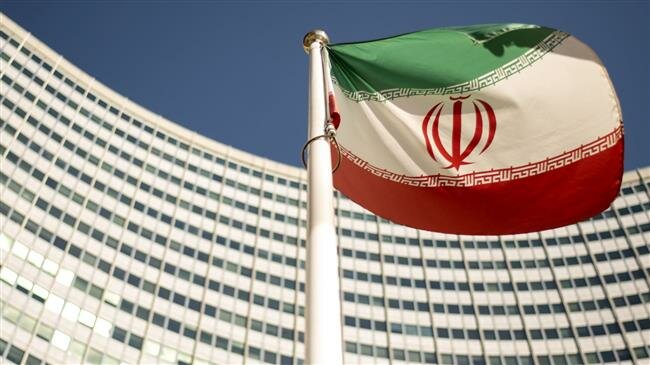IAEA chief worried about increasing tensions over Iran nuclear work
The UN nuclear agency's chief says he is "worried about increasing tensions" over Iran's nuclear program, calling for de-escalation efforts as Tehran expresses dissatisfaction with European actions to offset the effects of the US withdrawal from a 2015 international deal.

“I… hope that ways can be found to reduce current tensions through dialogue,” Director General of the International Atomic Energy Agency Yukiya Amano said on Monday in a speech to a meeting of the IAEA’s 35-nation Board of Governors, one of its main decision-making bodies.
Iran and the five permanent members of the United Nations Security Council — the United States, France, Britain, Russia and China — plus Germany signed the nuclear agreement, officially known as the Joint Comprehensive Plan of Action (JCPOA), on July 14, 2015 and started implementing it on January 16, 2016.
Under the JCPOA, Iran undertook to put limits on its nuclear program in exchange for the removal of nuclear-related sanctions imposed against Tehran.
However, US President Donald Trump pulled his country out of the JCPOA in May 2018 and re-imposed harsh sanctions against the Islamic Republic in defiance of global criticisms.
On the first anniversary of the US withdrawal from the nuclear deal, Iran announced that it would suspend the implementation of some of its commitments under the deal, adding that it would stop exporting excess uranium and heavy water, setting a 60-day deadline for the five remaining parties to the deal to take practical measures towards ensuring its interests in the face of the American sanctions.
In its quarterly report on May 31, the IAEA said Iran’s increased stocks of key nuclear materials are still within the limits set by the JCPOA.
Iran complying with nuclear deal’s key limits: IAEAThe IAEA says Iran has stayed within the central limits on its nuclear activities in accordance with the JCPOA.
It added that Iran had stayed within caps on items, including the level to which it enriches uranium and its stock of enriched uranium.
In his introductory statement to the Board of Governors, Amano said, “As I have constantly emphasized, the nuclear-related commitments entered into by Iran under the JCPOA represent a significant gain for nuclear verification. I therefore hope that ways can be found to reduce current tensions through dialog.”
He urged Iran to continue to fully implement its nuclear-related commitments under the nuclear accord and said, “The agency continues to verify the non-diversion of nuclear material declared by Iran under its Safeguards Agreement.”
Amano added that the IAEA would continue its evaluations regarding the absence of undeclared nuclear material and activities in Iran.
The spokesman for the Atomic Energy Organization of Iran (AEOI), Behrouz Kamalvandi, said on May 20 that Tehran has increased by fourfold the production rate of uranium enriched to 3.67% just a few weeks after the country officially stopped implementing some of its commitments under an international nuclear accord.

Iran quadruples 3.67% enriched uranium output: AEOISpokesman for the AEOI says Iran increases by fourfold the rate of 3.67% enriched uranium production.
“This issue does not mean an increase in enrichment level or an increase in centrifuge machines or a change in the type of centrifuges, but the production capacity of these 3.67% enriched uranium will be quadrupled,” Kamalvandi said.







